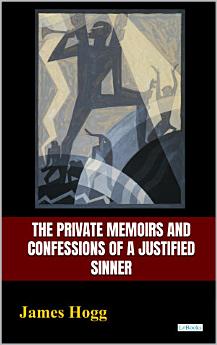The Private Memoirs and Confenssions of a Justified Sinner
About this ebook
Since its publication in 1824, Hogg's novel has gained recognition for its ahead-of-its-time exploration of identity, duality, and the dangers of extreme religious ideology. It challenges notions of morality, free will, and the reliability of narrative, often blurring the line between the real and the imagined. Hogg's use of unreliable narration and psychological depth places the work as a precursor to modernist and postmodernist literature.
The novel's enduring impact lies in its ability to disturb and provoke. The Private Memoirs and Confessions of a Justified Sinner remains a powerful meditation on self-deception, the corrupting force of dogma, and the fragile nature of human consciousness. Its ambiguity and complexity continue to inspire critical debate and fascination, securing its place as a dark masterpiece of Scottish literature.
About the author
James Hogg was a Scottish poet, novelist, and essayist, widely recognized for his contributions to Scottish literature and for his exploration of themes such as identity, religious conflict, and the duality of human nature. Born in the Ettrick Valley in the Scottish Borders, Hogg came from humble pastoral origins and became known as the "Ettrick Shepherd." His most famous work, The Private Memoirs and Confessions of a Justified Sinner (1824), remains a landmark in Gothic fiction and psychological literature.
Hogg's literary output spanned poetry, prose, and essays. He was both celebrated and critiqued in his time for his rustic background and unpolished style, yet he demonstrated a profound capacity for innovation and depth. His magnum opus, The Private Memoirs and Confessions of a Justified Sinner, is a complex narrative that blends supernatural elements, psychological introspection, and religious commentary. The novel tells the story of Robert Wringhim, a young man manipulated by a mysterious stranger who may be the devil himself, leading to murder and madness under the guise of predestined salvation.
Though often overshadowed by more refined figures of the Scottish Enlightenment, Hogg's work carved a unique space in the literary canon. His use of Scottish dialect and folklore helped preserve cultural elements often neglected in more metropolitan literature. Confessions of a Justified Sinner in particular has been reevaluated by modern critics and is now seen as a precursor to both Gothic and psychological fiction, noted for its chilling ambiguity and its exploration of moral and spiritual conflict.







